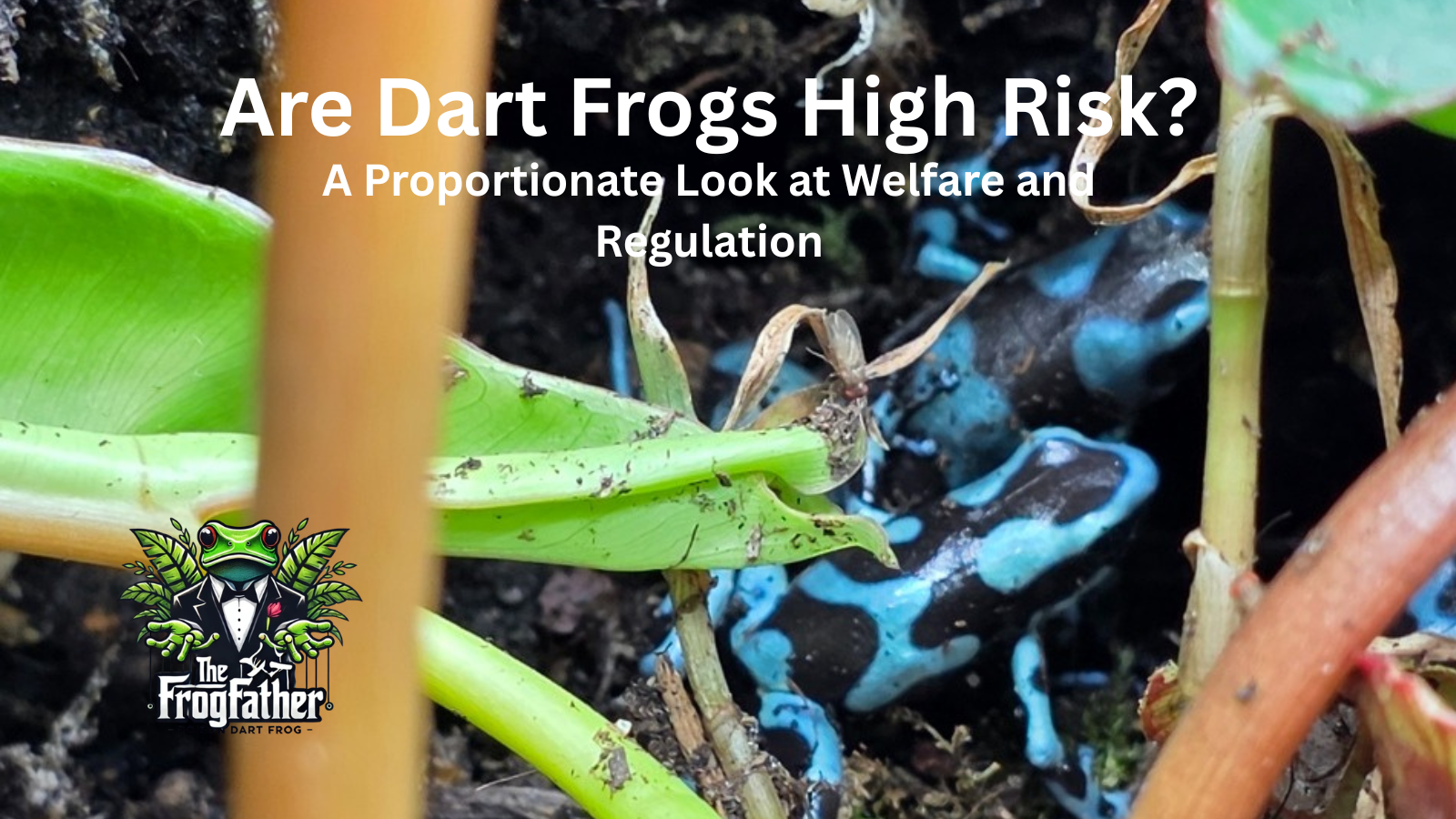It’s a noise you never forget. That tiny plop on laminate flooring at 6am. Then dead silence. Followed by an awful realisation: your dart frog is not in the vivarium.
Welcome to the panic-fuelled nightmare every frog keeper dreads — the great escape. Here’s the full story of how I found my missing dart frog, how I prevented it happening again, and the vital tips every UK keeper needs to know to stop a tragic outcome.
Why Dart Frogs Escape in the First Place
Contrary to their sluggish stereotype, dart frogs are fast. Tiny, alert, and opportunistic — they’ll bolt the moment an opening appears. That includes:
- Warped mesh lids on Exo Terra-style vivariums
- Gaps in sliding glass doors
- Loose feeding hatches
- Unsealed cable ports or misting holes
- Accidental openings during feeding or misting
Humidity, heat, and time all warp enclosures — and even a 1cm gap is enough for a determined Phyllobates or Dendrobates to slip through.
My Escape Story: Step-by-Step Breakdown
1. The Realisation
It started like any other morning. Misting on. Lights warming up. Coffee brewing. And then — plop. I turned, and the cobalt blur was gone. Gone from the viv, gone from sight. Just wet prints and a frog-shaped hole in my heart.
2. Immediate Frog Room Lockdown
- Closed all windows, doors, and vents
- Turned off fans and heating
- Lowered the lighting
- Removed pets from the area
You need to reduce escape chances further and give yourself the best possible environment to spot movement.
3. Tools I Grabbed
- Headtorch and mobile phone torch
- Several small deli cups
- Damp paper towel
- Plastic spatula (soft-edged)
4. Where to Look for Escaped Dart Frogs
- Under and behind vivariums
- Curtain hems and folds
- Laundry piles
- Under floor mats or rugs
- Warm cables and plug areas
- Inside plant pots or misting buckets
Look for humidity. Dart frogs gravitate towards damp, dark, and cool areas — usually low to the ground.
5. How I Found Mine
After 20 sweaty minutes of silent crawling, I spotted movement — just the faintest shimmer under the curtain. He’d wedged himself into the hem, likely attracted by the darkness and warmth from the radiator.
Safe Retrieval: Don’t Make It Worse
DO:
- Use a soft tub or deli cup to gently guide the frog in
- Wear powder-free gloves or use clean, wet hands
- Place them into a prepared rehydration tub (moist paper towel, loose moss, shallow lid of spring water)
DON’T:
- Grab them with fingers
- Chase or herd aggressively
- Leave them dry for more than 15 mins after finding
Rehydration and Recovery
My guy was active but a bit dull in colour. No visible dehydration signs, but I gave him an hour in a mossy cup before reintroducing him. He perked up almost instantly — back to calling by the evening.
Signs of stress to watch:
- Wrinkled or dry skin
- Unresponsive or limp
- Pale or greyish tone
- Rapid breathing
Escape-Proofing Your Vivarium (Properly This Time)
What I changed:
- Replaced warped mesh with 3mm acrylic sheet
- Added neoprene gasket seals to door edges
- Installed magnetic locks to feeding ports
- Sealed all cable holes with rubber grommets
- Daily door and lid check now part of routine
If you’re in a humid room or near a window, warping is almost guaranteed over time.
FAQ: Escaped Dart Frogs in the UK
How long can a dart frog survive outside the vivarium?
Up to 12 hours if humidity is high and it doesn’t desiccate — but less in hot or dry rooms.
Should I use heat mats or traps to lure them out?
No heat mats — too risky. Use damp towels and low lights. They’re more likely to move if it’s quiet and humid.
Can escaped dart frogs be safely returned to their enclosure?
Yes, if they haven’t been injured or exposed to harmful substances. Quarantine for a day or two if in doubt.
Is this more common with Exo Terra vivs?
Yes. Their mesh lids warp easily and doors don’t always seal unless modified.
Final Thoughts
Not all escape stories end well. I was lucky. But since then, every viv I build or sell includes frog-proofing as standard. It’s not just about building pretty displays — it’s about safe homes for creatures that trust us.



